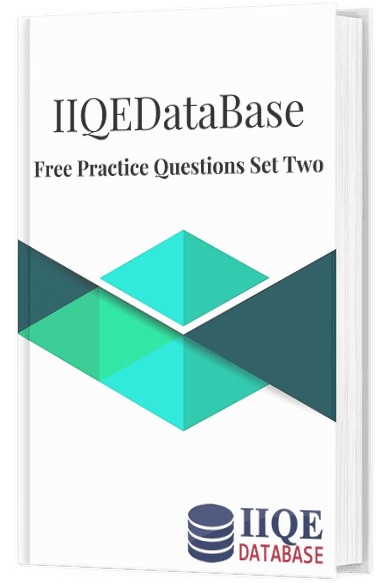Are you ready to dive into the world of general insurance products?
In this article, we’ll explore the ins and outs of property, liability, motor, and marine insurance.
Whether you’re studying for the IIQE exam or simply interested in expanding your knowledge, we’ve got you covered.
From understanding the basics to delving into key concepts, this comprehensive guide will equip you with the knowledge you need to navigate the world of general insurance.
So, let’s hit the ground running and explore these important insurance concepts together!
Key Takeaways
- General insurance covers property, liability, motor, and marine risks.
- Property insurance safeguards homes, business premises, and personal belongings.
- Liability insurance protects against financial loss from injuries or property damage caused by your actions.
- Motor insurance provides financial protection for accidents or damage to your vehicle.
Overview of General Insurance Products
General insurance products cover a wide range of risks such as property, liability, motor, and marine. These policies provide coverage against unforeseen events that may cause financial loss or damage.
An overview of policy coverage helps individuals understand the extent of protection offered by general insurance. Property insurance, for example, safeguards against losses related to one’s home, business premises, or personal belongings. Liability insurance, on the other hand, offers protection in case you are held legally responsible for causing harm to others or damaging their property. Motor insurance provides coverage for vehicles against accidents, theft, or third-party damages. Lastly, marine insurance protects ships, cargo, and other maritime assets.
By understanding the various types of general insurance, individuals can make informed decisions about their coverage needs and mitigate potential risks.
Moving forward, let’s delve into the specifics of property insurance.
Understanding Property Insurance
To understand property insurance, it’s important to know that it covers damage to your home and belongings caused by events like fire, theft, or natural disasters. Property insurance coverage can vary depending on the type of policy you choose.
Here are three types of property insurance:
Homeowners Insurance: This type of insurance provides coverage for both your home and personal belongings. It also includes liability coverage in case someone gets injured on your property.
Renters Insurance: If you are renting a property, renters insurance can protect your personal belongings in case of damage or theft. It also provides liability coverage.
Condo Insurance: Condo insurance is specifically designed for condominium owners. It covers personal belongings and provides liability coverage as well.
Understanding property insurance is crucial to protect your investment and belongings.
Now, let’s explore liability insurance and its importance in safeguarding your financial well-being.
Exploring Liability Insurance
When it comes to liability insurance, you need to understand how it protects you financially in case someone gets injured or their property gets damaged due to your actions. Liability insurance provides coverage options to safeguard you from potential legal claims and the associated costs. It ensures that you are protected in situations where you may be held responsible for causing harm or damage to others.
In the unfortunate event of an accident or incident, liability insurance helps cover the expenses related to legal defense and settlements. Understanding the claims process is crucial in ensuring a smooth and efficient resolution. By familiarizing yourself with the claims process, you can navigate through the necessary steps to file a claim and receive the compensation you deserve.
Now let’s delve into insights into motor insurance, where we will explore the various aspects of this important coverage.
Insights Into Motor Insurance
Take a look at the coverage options available for motor insurance and understand how they can protect you in case of accidents or damages.
Motor insurance provides financial protection in the event of an accident or damage to your vehicle. There are various types of coverage available to suit different needs.
The most common type is third-party liability coverage, which covers you for damages caused to others in an accident. Comprehensive coverage, on the other hand, provides protection for damages to your own vehicle as well.
When it comes to the claims process, it typically involves reporting the incident to your insurance company, providing necessary documentation, and getting an assessment for repairs or compensation.
Understanding the different types of coverage and the claims process is crucial in ensuring that you have adequate protection for your vehicle.
Moving on to marine insurance, let’s delve into the key concepts in this type of insurance.
Key Concepts in Marine Insurance
Understanding the key concepts in marine insurance can help you choose the right coverage for your vessel. Marine insurance is a specialized type of insurance that provides coverage for ships, cargo, and other maritime risks. There are various types of marine risks that can be covered by a marine insurance policy, including hull and machinery damage, cargo damage or loss, and liability for third-party damages.
To give you a better understanding of the key concepts in marine insurance, here is a table summarizing some common marine insurance policy features:
| Policy Feature | Description |
|---|---|
| Hull Coverage | Provides protection for physical damage to the vessel |
| Cargo Coverage | Covers damage or loss of goods being transported by the vessel |
| Liability Coverage | Protects against claims for third-party injuries or property damage |
| Freight Coverage | Covers the loss of freight revenue due to damage or loss of cargo |
| Sue and Labor | Covers expenses incurred to minimize or prevent further damage |
Frequently Asked Questions
What Are the Common Exclusions in a Property Insurance Policy?
Common exclusions in property insurance policies refer to specific situations or events that are not covered by the policy. These exclusions can include intentional damage, wear and tear, acts of war, and natural disasters like earthquakes or floods.
It is important to carefully review your policy to understand the coverage limits and exclusions, as they can vary depending on the insurance provider and the specific policy terms.
How Does Liability Insurance Differ From Property Insurance?
Liability insurance and property insurance are different in several ways.
Liability coverage protects you in case you are held responsible for injuring someone or damaging their property. It helps cover legal expenses and damages you may be required to pay.
On the other hand, property coverage protects your own property against damage from events like fire, theft, or natural disasters.
Understanding these differences can help you choose the right insurance policies to protect yourself and your belongings.
What Factors Can Affect the Premium of a Motor Insurance Policy?
Factors affecting motor insurance premiums can vary greatly, depending on several key elements. These elements include your age, driving record, type of car, and the area you live in. Insurance companies also take into account the level of coverage you choose and any additional features you add to your policy.
To reduce your motor insurance premiums, you can consider increasing your deductible, maintaining a clean driving record, and installing safety devices in your car.
Are There Any Specific Regulations or Laws That Govern Marine Insurance?
Marine insurance is subject to specific regulations and laws that govern its coverage. These regulations ensure that the policies meet certain standards and protect both the insured and the insurer.
Marine insurance coverage requirements may vary depending on the type of marine risk being insured, such as hull insurance, cargo insurance, or liability insurance.
These regulations help maintain the integrity and stability of the marine insurance industry, providing a framework for fair and reliable coverage.
Can You Explain the Concept of General Average in Marine Insurance?
When it comes to marine insurance, one important concept to understand is general average.
This refers to a situation where, in the event of a maritime peril, all parties involved in the voyage contribute proportionally to the losses incurred for the common good.
The general average calculation determines each party’s contribution based on the value of their cargo.
It’s a complex system that ensures fairness and shared responsibility among all parties involved in the maritime venture.
Conclusion
In conclusion, as you navigate through the vast ocean of general insurance products, remember that each one serves as a lifeboat for your assets and personal well-being.
Property insurance provides a sturdy shelter amidst the stormy winds of uncertainty, while liability insurance acts as a shield, protecting you from the waves of legal consequences.
Motor insurance acts as the engine that keeps you moving forward, and marine insurance serves as a compass, guiding you through the treacherous waters of risk.
Choose wisely, for these insurance products can be the lighthouse that illuminates your path to financial security and peace of mind.



